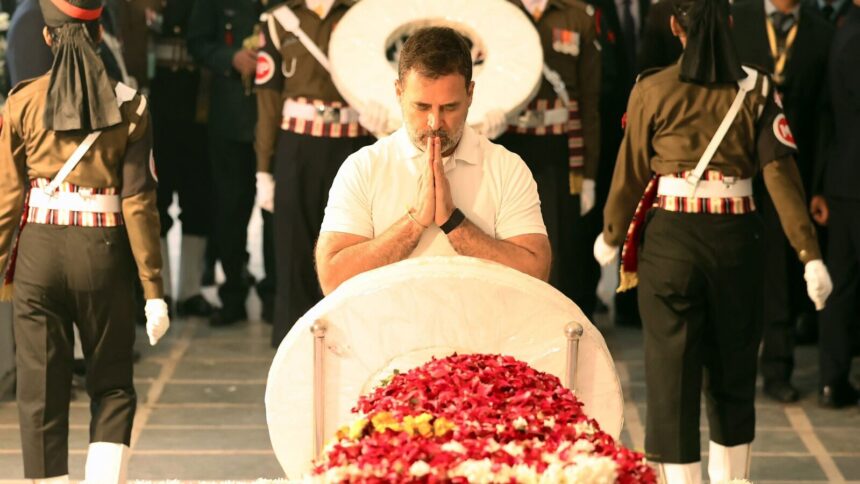The Last Rites of Manmohan Singh: A National Debate on Dignity and Memory
On a somber Saturday, India witnessed the farewell of its former Prime Minister Manmohan Singh, whose last rites were held at the Nigambodh Ghat in Delhi. This event quickly mushroomed into a contentious political discourse, revealing deep-seated tensions between the ruling Bharatiya Janata Party (BJP) and the opposition Congress party. The manner of Singh’s cremation stirred significant controversy, as many Congress leaders decried it as an insult to the legacy of a leader who held office from 2004 to 2014.
The Background of Controversy
Manmohan Singh, India’s first Sikh Prime Minister, was revered for his economic policies and leadership during challenging times. His passing prompted widespread mourning and tributes from various sectors, emphasizing his contributions to the nation. However, the choice of Nigambodh Ghat for his cremation instead of a designated memorial site ignited criticism from Congress leaders. They argued that previous Prime Ministers had their cremations conducted at sites where memorials could be established, allowing the public to pay their respects in an appropriate manner.
Rahul Gandhi, a prominent leader within the Congress party, expressed his dissatisfaction on social media, stating, “Manmohan Singh ji has been totally insulted by the present government… respecting the dignity of all former Prime Ministers…”. His remarks encapsulated the sentiments of many who believed that Singh deserved better recognition in death than what was afforded to him.
Government Response and Political Repercussions
Despite the public outcry, the BJP defended its stance, citing logistical reasons for the choice of the cremation site. Sambit Patra, a BJP MP, pointed out that “cremation is a process that can’t wait,” reflecting the urgency surrounding the arrangements. He emphasized that the government had indeed communicated with both the Congress party and Singh’s family about plans to allocate space for a future memorial, but that such processes naturally take time.
The Cabinet, led by Prime Minister Narendra Modi, had convened shortly after Singh’s death to discuss the memorial plans. Following the state funeral held with full military honors, which took place at the Nigambodh Ghat, discussions were initiated about forming a trust to facilitate the establishment of a memorial. However, critics saw this as a reactive measure rather than a proactive recognition of Singh’s contributions.
The Broader Implications of the Debate
This incident not only reflects the grievances of the Congress party but also highlights the ongoing ideological battles in Indian politics. The memorial debate underscores the significance placed on a leader’s legacy and how it is honored or, in this case, seemingly neglected by the ruling party. It also emphasizes the pain of losing a leader who was seen as a unifying figure during a time when economic reforms reshaped India’s global standing.
Moreover, the interactions between Congress and the BJP on this topic show how deeply intertwined political agendas are with personal and national history. While the BJP criticized Congress for "doing politics on a day of grief," many in the opposition view their calls for respect and dignity as fundamentally non-partisan, rooted in a sense of justice for a leader who served the nation selflessly.
Conclusion
As discussions continue regarding the memorial for Manmohan Singh, the incident reflects broader themes within Indian politics—legacy, respect, and the treatment of those who once held the reins of power. For many, the choice of Nigambodh Ghat serves as a reminder not just of Singh’s passing but of the continuing discord in how leaders are honored in death. The eventual establishment of a memorial will not only pay tribute to Singh’s contributions but may also serve as a platform for bridging political divides within the country.
As India navigates this period of mourning and reflection, the hope remains that leaders from all affiliations can come together to honor the memory of those who shaped the nation’s journey—a sentiment that transcends political boundaries.










